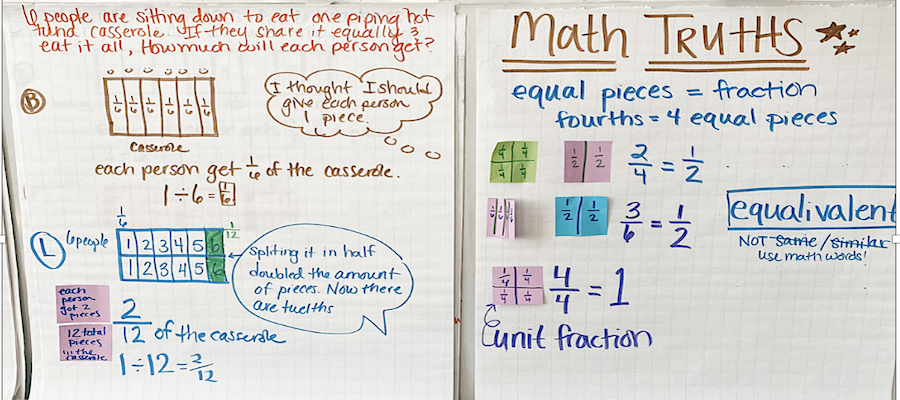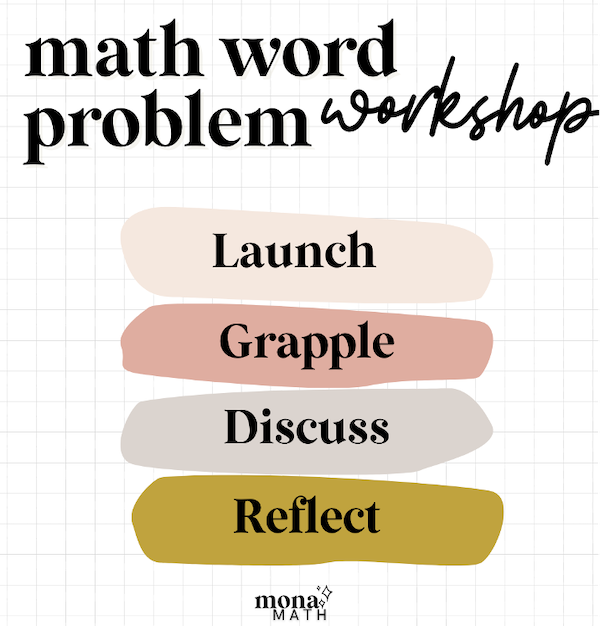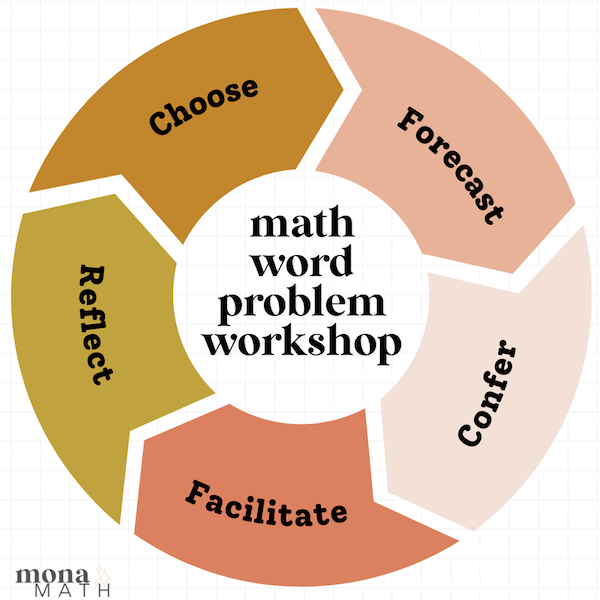Moving from the WHAT to the HOW in Math Class
By Mona Iehl

As a young elementary teacher I unsuccessfully taught math to my students using the same process my teachers taught math to me. I grew up telling myself the false story that I was “not a math person.” I now know the focus of my own education – and my first years of teaching math – was on speed and completion.
Because speed and answers did not come easily to me, I decided I was not good at math. Since my college education didn’t prepare me with a shift in mindset or solid instructional practices for teaching math, I went into teaching with a passion for teaching everything except math.
The way I taught early in my career relied heavily on planning lesson by lesson. I focused on what lesson, what activity, or what procedure we would do.
- What would I teach?
- What lesson would we complete?
- What problems would students have to complete?
- What would I do when students didn’t understand?
- What would I do if students are off task and talking?
My planning did not focus on how I would teach or how students would engage with math.
Shifting from Me to Them, from What to How
Over time, I’ve shifted my math teaching practice, and I’m now considering different questions than those of my early career.
► Instead of “What will I teach?”… now I ask “How will students grapple with this content?”
My planning used to look like this: choose the lesson; include examples to give; select questions students would complete, and move on to the next main objective.
Now I consider how my early middle grades students will work on a singular, complex word problem that will give them experience of the mathematical standard and objective for the lesson. This experience is hands-on, with plenty of time for independent productive struggle.
► Instead of “What will I do when students don’t understand?”… now I ask “How will I support students’ development of understanding over time?”
I plan for the progression of mathematical ideas. I know students’ learning builds on what they already know and develops a little bit each time they have an experience with the concept. This means I plan for opportunities for exploration, discussion, and conferring every single day. I keep close track of where students are along the progression of mathematical understanding and provide “just in time” supports to help nudge them along that progression.
I know it is my job to help students have both the confidence and mindset to take risks and deeply explore mathematics. Now I also realize that I need a strong math culture in my classroom to allow my students to problem solve. I’ve shared about how I created that culture here.
► Instead of “What will I do if my students are talking?”… now I ask “How can I facilitate students’ learning in a discussion?”
I consider my role in the math classroom as the facilitator of students’ learning. I now know that when I provide opportunities for students to explain their thinking and collaborate, they are able to develop deep understandings and confidence in their problem solving ability.
So I plan for the questions I’ll ask as students progress along the trajectory of understanding. I plan for what models I’ll have students share to provoke a conversation worthy of making mathematical conjectures.
How Can We ALL Make these Shifts?
Start with the research. These are not concepts I’ve made up, but concepts I have found in inspiring books like:
- 5 Practices for Orchestrating Productive Mathematics Discussions by Margaret (Peg) S. Smith and Mary K. (Kay) Stein
- Children’s Mathematics, Second Edition: Cognitively Guided Instruction by Thomas P. Carpenter, Elizabeth Fennema, et al.
- Principles to Actions: Ensuring Mathematical Success for All by the National Council of Teachers of Mathematics
These three books helped me create a daily workshop model for my elementary and middle school classroom where students problem solve every day. The model incorporates a structure for planning and facilitation that helps engage every student in problem solving and building a positive math identity.
I created my Word Problem Workshop because I knew I couldn’t continue teaching the way I was taught. I was frustrated daily with the blank stares as students gave up on word problems and froze when they weren’t sure what to do. I needed a way to support my students in building problem solving skills, a deep understanding of math and a positive math mindset.

What is ‘Word Problem Workshop’?
Word Problem Workshop is an instructional routine that helps teachers create a math class that empowers students to confidently problem-solve word problems.
In Word Problem Workshop students go through four key steps each day – Launch, Grapple, Discuss, Reflect. Within each of those steps there are strategic planning and facilitation moves to support students to build their mathematical understanding.
During the Launch the goal is to help students understand the problem and informally assess who needs more support getting started with the solving process.
At Grapple time students problem-solve independently as teachers confer and gather data. Teachers forecast how students will solve problems in order to plan strategic questions. Using these forecasted ideas, teachers will use their pre-planned questions to nudge students along the progression in conferences.
During the Discussion students discuss their thinking about the models and strategies shared. Each discussion is student-led and facilitated by the teacher using the pre-planned questions to move the class toward developing a math conjecture (or math “truth”).
After the Discussion students return to their independent work space for a reflection. This is a way for teachers to assess how students are progressing in their mathematical thinking and helps to inform the next problem chosen for the class to grapple with.
Word Problem Workshop is a student-led approach to exploring and understanding math. The teachers’ focus is on “the how”, not “the what.” In fact, the answers in Word Problem Workshop are never the focus. Instead how students got their answers holds the spotlight in all elements of the workshop.
Growing Along a Progression
I’ve learned that my students won’t learn to master a math skill in the one or two days my curriculum devotes to the topic, but I’ve also learned that about myself and my teaching skill. As I’ve grown into my own math identity and comfort level with teaching math, I realize I get a little better every day.
In recent years, I’ve begun to teach other teachers how to lead Word Problem Workshop, I always emphasize that this is a progression. Changing our teaching practices is not something we can implement tomorrow and expect to master, but instead we grow a little each day. I’m still in my classroom doing just that.
If you’d like to learn more about Word Problem Workshop, I’d love to have you take part in a training session I’m hosting on March 11th @ 1pm CST. You can register at MonaMath.com/training. It’s free. I hope to see you there so we can continue to learn and grow together as math educators!
Mona Iehl (@HelloMonaMath) is a fifth- and sixth-grade math teacher in Chicago, Illinois. Mona started her 14-year year teaching career in the primary grades but found her home in the middle grades six years ago. For more details about her teaching methods, visit her website and see her other MiddleWeb posts here. Mona recently took her passion for helping teachers and students find their inner mathematician to a podcast. Listen in at @HonestMathChat.































